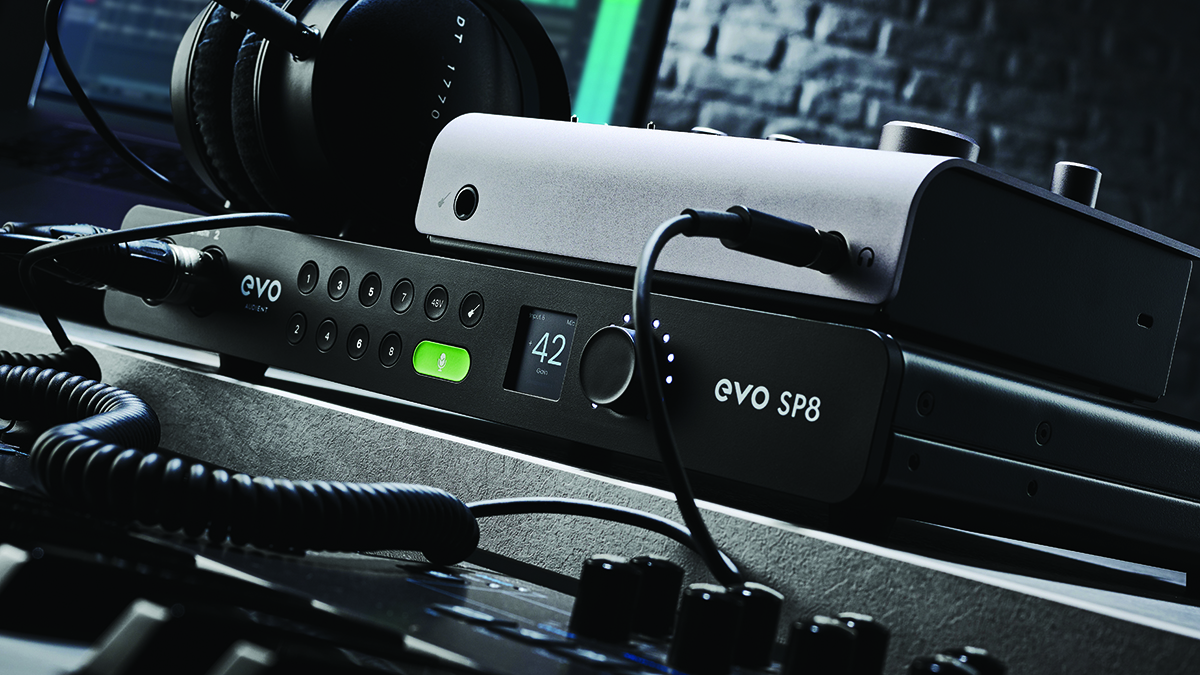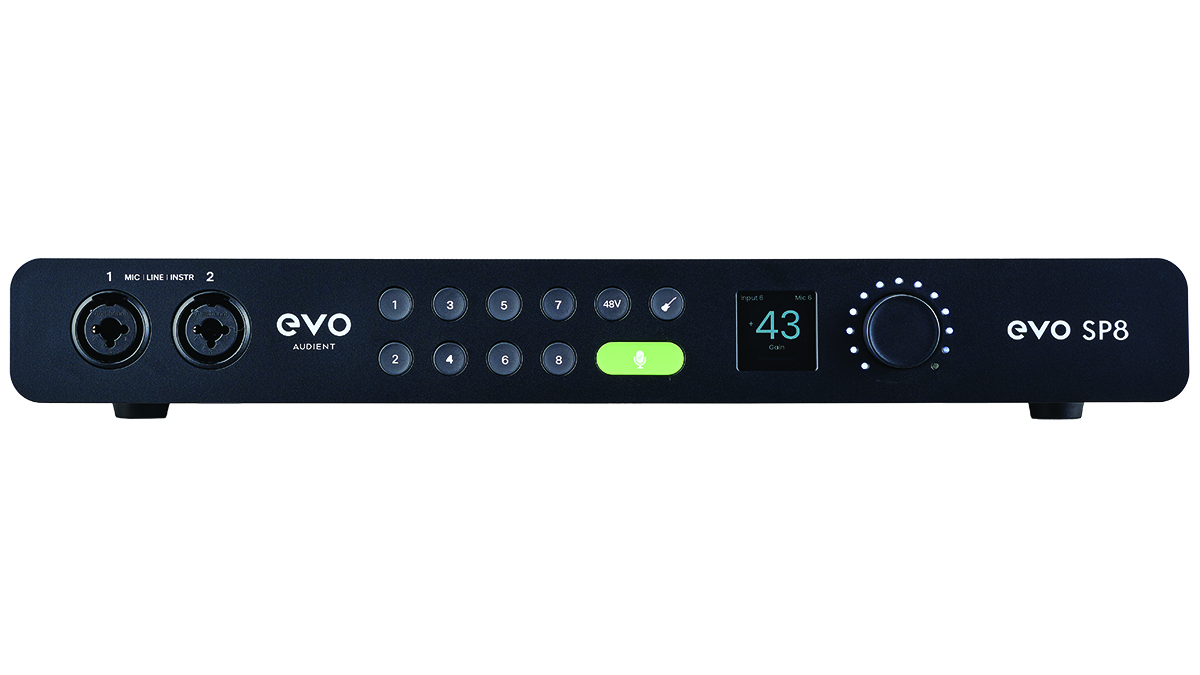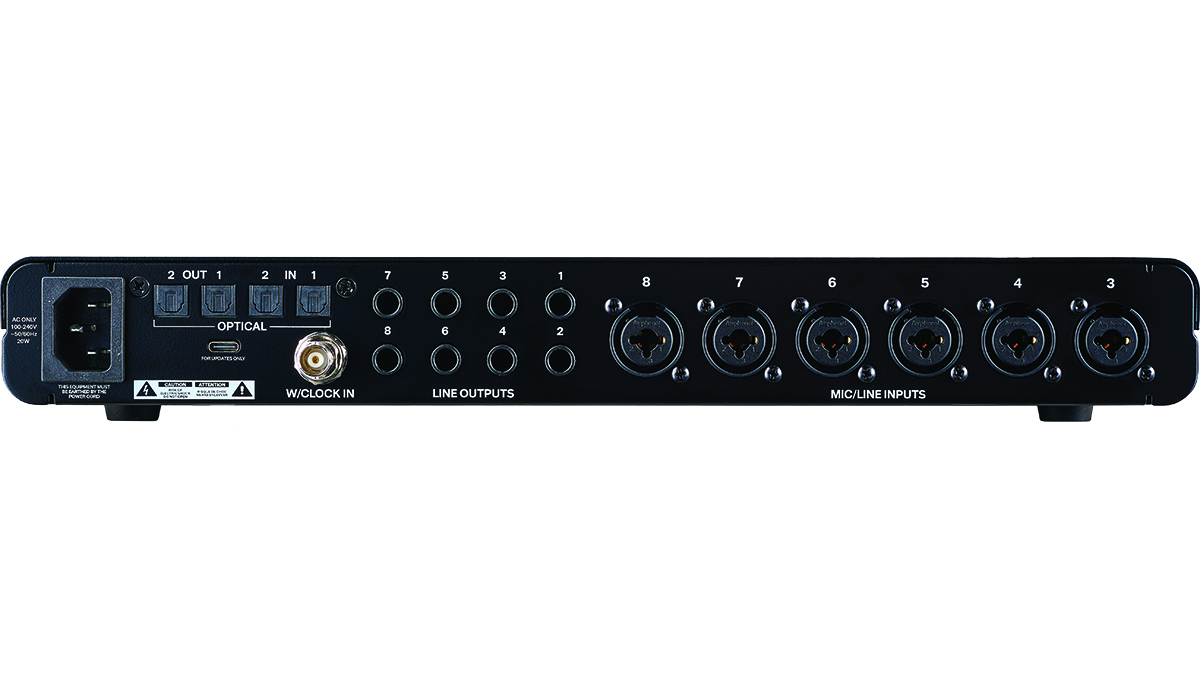
Audient EVO SP8: What is it?
Audient’s EVO 16 proved to be one of the big hits of 2022, offering operational slickness and premium fidelity in a compact and affordable package. Nevertheless, if you wanted to use its onboard ADAT connectivity to access more analogue inputs and outputs, you’d have to settle for a regular ADAT-equipped converter, meaning none of that EVO operational magic.
The arrival of EVO SP8 is designed to redress the balance, offering eight channels of mic pre expansion and also digital to analogue conversion.
Just like the EVO 16, the EVO SP8 has two front-mounted and six rear-mounted inputs. All use XLR/TRS combi inputs and feature the EVO mic preamp, with the front two also offering Audient’s JFET-equipped instrument input.
Round the back you’ve got eight balanced analogue outputs (TRS jacks) alongside two ADAT inputs and two ADAT outputs, supporting eight channels of AD and DA conversion at up to 96kHz, assuming your interface also has two pairs of ADAT I/O.

Audient EVO SP8: Performance and verdict
The SP8, much like other EVO units, uses Audient’s onboard control software – Motion UI. The channel selector, 48V phantom, instrument and Smartgain buttons work in tandem with the push button rotary encoder and colour LCD screen to adjust gains, activate Smartgain, view meters and access unit settings.
One of these settings sets the global I/O routing so the SP8 can either work as a standalone mic preamp, sourcing the analogue outputs directly from the preamps, or in DA mode where the ADAT inputs are routed to the analogue outputs. Another option is a clocking source – internal, ADAT input or Word Clock input.
In practice, the Smartgain feature is a truly time-saving design. The process only takes a few seconds and because you specify which inputs to set, you can do it in more than one stage or even repeat specific inputs as required.
Also, if no signal is detected it will flag the relevant input, which is handy. So, even if you don’t like the idea of an automatic gain setting, you could simply use Smartgain to get rough levels and then tweak them manually.
Additionally, for EVO 16/EVO SP8 combinations, and as long as you have ADAT inputs and outputs connected, the Smartgain can be activated globally from any of the units. Clever stuff and particularly handy as your input tally increases.
From a sonic perspective, the EVO SP8 mic pre, just like the EVO 16, is a clean design with plenty of headroom. Meanwhile, the JFET instrument input has plenty of gain and handles guitar peaks very well.
Overall, EVO SP8 is an excellent, easy-to-use unit that will expand any ADAT-equipped interface.
MusicRadar verdict: Stylish and capable, this is a simple but effective interface that integrates excellently with Audient’s EVO 16 interface.
Audient EVO SP8: The web says
"Added to a non-EVO system, the SP8 is an exciting and truly evolutionary proposition. When paired with the EVO 16, the two form a formidable powerhouse of a team."
MusicTech
Audient EVO SP8: Hands-on demos
EVO by Audient
Produce Like A Pro
Adam Steel
Ed Thorne Music Production
Audient EVO SP8: Specifications

- ANALOGUE INS: 2 mic/line/instrument, 6 mic/line – EVO mic pre, JFET instrument
- ANALOGUE OUTS: 8 Balanced Line Outputs
- DIGITAL: 2 ADAT Inputs, 2 ADAT Outputs
- SAMPLE RATE: 44.1, 48, 88.2, 96kHz
- CLOCKING: Internal, ADAT digital or Word Clock.
- DIMENSIONS: 355 x 255 x 53mm.
- WEIGHT: 2.73kg.
- CONTACT: Audient







